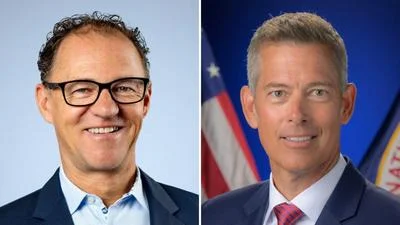Washington, D.C. - House Energy and Commerce Committee Republican Leader Cathy McMorris Rodgers (R-WA) delivered the following remarks in today’s Consumer protection and Commerce Subcommittee hearing on advancing America’s automated vehicle industry.
Excerpts and highlights from her prepared remarks:
REOPENING
“Before I speak on AVs, I would like to appeal to all members of this committee to support full in-person hearings. I heard the Chair say in the beginning, due to the COVID-19 health emergency, this hearing is being held remotely.
“Madam Chair, the CDC guidance allows for in-person hearings. Its time. The Senate is holding in-person hearings. I’m a proud member of this committee. We often say we know that it is the best committee on Capitol Hill and I speak for many of my colleagues who are eager to do the People’s work again-together, face to face, not through a computer screen or muted.
“Virtual hearings are taking a toll on this committee’s important work and further braking down our effectiveness. Please, let’s come together and reopen E&C to legislate and plow the hard ground to get things done on behalf of the people who we have the honor to represent in the People’s House."
AVS
“Now, turning back to today’s hearing, this is a critical time to be discussing the advancement of automotive technologies.
“The surface transportation bill expires this year, and discussions on its reauthorization are currently underway.
“At the same time, U.S. leadership in innovation and next generation technologies is being challenged by adversaries like the Chinese Communist Party.
“To win the future and beat China, the Energy and Commerce Committee must again move bipartisan legislation - we must act now to ensure the U.S. continues to lead in technologies like AVs.
“If we fail to act as we did last Congress, not only do we risk ceding global leadership to China, but here in Congress we risk ceding this Committee’s stewardship of these matters. Our fellow committees will not hesitate to legislate on next generation technologies and creep in on our jurisdiction.
“So how should we think about these challenges before us?
“Ralph Waldo Emerson once wrote “Do not follow where the path may lead. Go instead where there is no path and leave a trail."
“He was not talking about autonomous vehicles when he wrote that, yet it is a fitting way to think about the future of these technologies and the opportunity we have on this committee to lead with unique solutions.“
BUSINESS, WORKFORCE, & MOBILITY IMPACT
“As with any new technology, businesses of all sizes and sectors will be disrupted and forced to adjust, the workforce will need to be re-trained to prepare and adapt for future opportunities.
“At the same time, we are already seeing the benefits associated with AVs. During the COVID-19 pandemic, we’ve witnessed how AVs can be used to deliver critical food, medical supplies, virus tests, and other needed provisions.
“During this time, many of us have also experienced some degree of restrictions for where we can go and what we can do.
“Sadly, for many of our senior citizens and those with disabilities, these are the kinds of restrictions they live with every single day, but AV technology has the power to tremendously improve their access and mobility. The idea that someone with a disability could one day be able to get into a car and go wherever they need to go is revolutionary.
“Many of these adjustments will be challenging, but they will be more challenging if the U.S. is not forging the path and leading the way."
BEATING CHINA
“If we do not lead, we will empower our adversaries to chart the future for AVs, artificial intelligence, and other critical and emerging technologies this committee has championed.
“China is moving ahead with ambitious plans to lead the development and deployment of AVs. Their authoritarian regime is already providing a roadmap to deploy AVs throughout China.
“We cannot trust the CCP to set the standards for this industry and we certainly cannot trust them to protect intellectual property and individual rights. The standards and regulatory framework must be lead by the U.S.
“America values the importance of the safety of our citizens - China does not.
“We value our workforce and free market economics - China does not.
“We value civil society groups, and their right to speak freely - China does not.
“We uphold western values like liberty, individualism, and human rights, and we cultivate innovation, entrepreneurship, and competition from the ground up - China does not.
“To win the future, the U.S. must lead on AVs. We must chart the path so all of these considerations can be part of a road we design, not determined by an adversary that does not respect our ideals and values."





